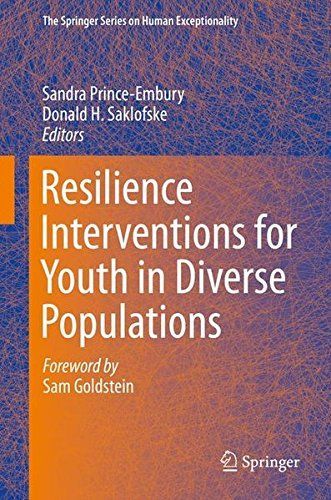
Resilience Interventions for Youth in Diverse Populations
Our uncertain times are hard enough for adults to navigate. For all too many young people—even many who appear to possess good coping skills—the challenges may seem overwhelming. More and more, resilience stands as an integral component in prevention programs geared to children and adolescents, whether at risk or not. Resilience Interventions for Youth in Diverse Populations details successful programs used with children and teens in a wide range of circumstances and conditions, both clinical and non-clinical. New strength-based models clarify the core aspects of resilience and translate them into positive social, health, educational, and emotional outcomes. Program descriptions and case examples cover diverse groups from homeless preschoolers to transgender youth to children with autism spectrum disorders, while interventions are carried out in settings as varied as the classroom and the clinic, the parent group and the playground. This unique collection of studies moves the field toward more consistent and developmentally appropriate application of the science of resilience building. Among the empirically supported programs featured: Promoting resilience in the foster care system. Developing social competence through a resilience model. Building resilience in young children the Sesame Street way. School-based intervention for resilience in ADHD. Girls Leading Outward: promoting resilience in at-risk middle school girls. Resiliency in youth who have been exposed to violence. Resilience Interventions for Youth in Diverse Populations is an essential resource for researchers, professionals/practitioners, and graduate students in clinical child and school psychology, social work, educational psychology, child and adolescent psychiatry, developmental psychology, and pediatrics.